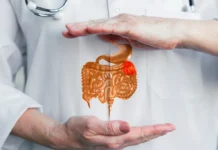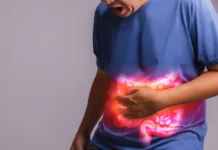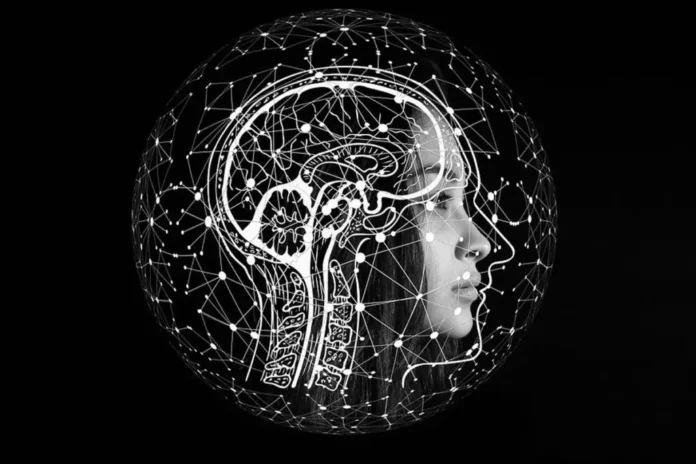Mental health disorders are a broad range of situations that can affect your mood, thinking, and behaviour. They may be moderate or severe, and they may be quick-term or lengthy-term. Mental health issues can affect everybody at any age.
There are many distinctive types of mental health disorders; however, some of the most common include:
- Anxiety problems
- Depressive problems
- Bipolar disease
- Schizophrenia
- Eating disorders
- Post-traumatic stress disorder (PTSD)
- Substance use problems
Common Symptoms of Mental Health Disorders
The symptoms of mental health problems can vary depending on the unique ailment; however, they can include:
- Changes in mood, inclusive of feeling unhappy, irritated, or irritable
- Changes in thinking, such as problem-concentrating or making decisions
- Changes in conduct, which include withdrawing from social activities or exhibiting competitive behaviours
If you’re experiencing any of the symptoms of a mental health disorder, it’s vital to try to find expert assistance. A mental health expert can examine your medical condition and suggest a treatment plan.
Treatment for mental health disorders may include therapy, medicine, or a combination of both. Therapy helps you understand your condition and broaden your coping mechanisms. Medication can help to enhance your signs and symptoms and make it less complicated to live a normal life.
Recovery from a mental health disorder is feasible, but it takes effort and time. With the proper remedy and support, you can learn how to manage your conditions and maintain a complete and efficient lifestyle.
Here are a few things you can do to take care of your mental health:
- Get an everyday workout.
- Eat a healthy diet.
- Get sufficient sleep.
- Avoid alcohol and drugs.
- Connect with others.
- Practice rest strategies.
- Seek expert help when needed.
If you are concerned about your mental health, please consult a professional doctor, therapist, or other mental health expert.
Mental Health Disorders: Overcoming Stigma
Mental health is just as important as physical health, but it is often misunderstood and stigmatized. This could make it hard for people to seek help for mental disorders, even if they need it most.
There are many reasons why humans may keep away from looking for assistance for mental illness. Some humans may be frightened of what others will think, or they may feel ashamed or embarrassed. Others might not comprehend that they’re suffering from a mental disorder, or they’ll no longer recognize where to move for assistance.
Not forgetting that mental illness is a common and treatable condition is crucial. Millions of human beings around the world suffer from mental illness, and there is no disgrace in looking for assistance. If you are suffering from a mental disorder, please recognize that you are not alone. Many people care about you and want to help.
Overcoming the Stigma of Mental Health Disorders
How can we eliminate the negative perception of mental illness and promote greater acceptance and understanding?
Many things can be done to overcome the stigma of mental illness. One critical step is to talk about mental diseases openly and genuinely. The more we talk about mental illness, the more humans will understand that it’s a common and treatable condition.
It is likewise crucial to challenge stereotypes and misconceptions about mental diseases. For example, many human beings believe that humans with mental illnesses are violent or risky. This is not true. The vast majority of individuals with mental disorders are not violent, and they are more likely to be victims of violence than perpetrators.
If you know someone with a mental illness, there are ways to help. One of the most critical things is to pay attention to them and offer your guidance. You can also help them locate sources and data about mental illness.
By openly discussing mental illness, challenging stereotypes, and providing assistance to those with mental disorders, we can eradicate the stigma surrounding mental health and create a more supportive and understanding society. Here are a few extra recommendations for overcoming the stigma of mental illnesses:
- Educate yourself and others about mental illness. The more people realize about mental disorders, the less likely they are to stigmatize them.
- Speak out against discrimination and stigma. If you spot or listen to a person making terrible remarks about mental illness, challenge them.
- Support mental health organizations. Many organizations are operating to raise awareness about mental illness and provide help to people who are struggling. You can help by donating your time or money or by volunteering your services.
- Share your personal story. If you’re comfortable doing so, sharing your tale can help to lessen stigma and show others that they are not alone.
Remember, you are not alone. If you are struggling with mental illness, please note that there is help available. Please reach out to a trusted friend or member of the family, or contact a mental health professional.
Diagnostic and Statistical Manual of Mental Health Disorders

The Diagnostic and Statistical Manual of Mental Disorders (DSM) is a guide published by the American Psychiatric Association (APA) that mental health experts use to diagnose mental disorders. The DSM-five-TR, the most recent edition, was published in 2022.
The DSM is a categorical system, which means that mental disorders are defined via precise sets of criteria. To receive a diagnosis of a mental illness, an individual must exhibit a specific number of symptoms for a particular duration.
DSM-5-TR, mental health uses
The DSM, which stands for Diagnostic and Statistical Manual of Mental Disorders, is utilized in various contexts, such as:
- Clinical practice: Mental health specialists use the DSM to diagnose mental disorders and develop remedy plans.
- Research: The DSM is used to conduct research on mental issues, together with their causes, remedies, and prevalence.
- Public policy: The DSM is used to broaden public policy related to mental health, which includes insurance coverage and disability benefits.
The DSM is a controversial document. Some critics argue that the categorical nature of the approach does not appropriately account for the complexity of mental illness. Others argue that the DSM is biased towards Western tradition and does not mirror the experiences of people from different cultures.
Despite its obstacles, the DSM is the most extensively used device for diagnosing mental problems globally. It plays a crucial role for mental health professionals, researchers, and public policy.
Here are some examples of mental disorders that might be identified through the use of the DSM:
- Major depressive disorder
- Bipolar sickness
- Schizophrenia
- Autism spectrum sickness
- Anxiety disorders
- Eating issues
- Substance use disorders
If you suspect that you or someone you know may have a mental illness, it’s crucial to seek out a qualified mental health professional for an evaluation.
Mental Health Disorders and Illnesses
There are many distinctive forms of mental fitness issues and ailments. Some of the most common include:
- Anxiety problems: Anxiety problems are characterized by immoderate worry. They can include generalized anxiety disorder, social anxiety disorder, panic sickness, and phobias.
- Mood problems: Mood issues are characterized by changes in temper, together with despair and bipolar disease.
- Psychotic disorders: Psychotic issues are characterized by losing contact with truth. They can encompass schizophrenia and schizoaffective disorder.
- Eating disorders: Eating problems are characterized by unhealthy eating behavior and frame-image concerns. They can consist of anorexia nervosa, bulimia nervosa, and binge eating disease.
- Personality issues: Personality problems are characterized by inflexible and maladaptive personality traits. They can consist of borderline personality disease, narcissistic personality sickness, and delinquent character disease.
- Substance use problems: Substance use issues are characterized by the excessive use of alcohol or capsules.
- Neurodevelopmental disorders: Neurodevelopmental disorders are characterized by delays or brain development issues. They can consist of autism spectrum disorder, highbrow incapacity, and learning problems.
It is important to recognize that this is just a small sample of the many different types of mental health issues and conditions. If you’re concerned about your mental health, please talk to a physician or mental fitness expert.
If you or a person you know is struggling with a mental health problem, please reach out for help. There are many resources to be had, and you also shouldn’t undergo this by yourself.
Anxiety disorders: Symptoms and treatments
Anxiety issues are a collection of mental health conditions that cause excessive anxiousness, fear, apprehension, and worry. These disorders modify how a person approaches feelings and behaves, and they can result in physical symptoms that include trouble breathing, dizziness, and a racing coronary heart.
Anxiety is a regular and frequently healthy emotion. However, humans with anxiety problems regularly have excessive anxiety and fear about ordinary conditions. This tension interferes with their day-to-day activities and might cause great misery.
Types of Anxiety Disorders
There are many distinct types of anxiety disorders, each with its own personal, precise symptoms and traits. Some of the most common kinds consist of:
- Generalized anxiety disorders (GAD): GAD is characterized by persistent and excessive fear of a variety of things, including health, finances, work, and family. People with GAD may additionally revel in physical signs and symptoms of anxiety, which include fatigue, restlessness, and muscle anxiety.
- Panic disease: Panic sickness is characterized by sudden and unexpected panic attacks. Panic attacks are episodes of extreme worry that come on quickly and attain their peak within minutes. During a panic attack, people may experience physical symptoms such as chest pain, shortness of breath, dizziness, and sweating.
- Social tension disorder (social phobia): Social anxiety disease is characterized by intense worry about social conditions. People with social tension disorder can also fear being judged or embarrassed in front of others. This worry can result in the avoidance of social interactions, which can interfere with paintings, faculty, and relationships.
- Specific phobias: Specific phobias are intense and irrational fears of specific items or situations, which include spiders, heights, or public speaking. People with specific phobias may go to great lengths to avoid things they fear, which can disrupt their daily lives.
- Agoraphobia: Agoraphobia is a type of anxiety disorder that causes people to fear and avoid situations or places that might be difficult to escape from or where help would not be available if something bad were to happen. People with agoraphobia may keep away from public locations, which include crowded shops or open spaces.
Anxiety disorders are commonplace and may affect people of all ages. However, they’re most common in adolescents and teenagers. Women are also more likely than men to develop anxiety disorders.
Causes of Anxiety Disorders
The cause of anxiety disorders is not fully understood, but it is believed to be a combination of genetic and environmental factors. Individuals with a family history of anxiety disorders or those who have gone through stressful experiences may be more susceptible to developing anxiety problems.
There are several effective treatments for anxiety problems. Treatment options include therapy, medication, or a combination of each. Therapy can help human beings understand and manage their anxiety, while medicine can assist in reducing the severity of hysteria symptoms.
If you believe you may have an anxiety disease, it’s critical to talk to your doctor. They can investigate your signs and symptoms and create a treatment plan that is appropriate for you.
Behavioral health disorders and their symptoms

Behavioral health disorders are a broad class of mental illnesses that can affect kids, youngsters, and adults. They can motivate a huge variety of signs, which include:
- Changes in temper and feelings: Feeling unhappy, depressed, anxious, irritable, or indifferent; having intense mood swings; or having problems handling emotions
- Changes in thinking and cognition: Having trouble concentrating, remembering matters, or making choices; having difficulty knowing facts; having delusions or hallucinations
- Changes in conduct: Withdrawing from social activities, avoiding certain conditions or people, engaging in risky or impulsive behaviors, and using drugs or alcohol to cope.
Additional Signs and Symptoms of Behavioral Health Problems
Other signs and symptoms of behavioral health problems can encompass:
- Changes in sleep patterns
- Changes in appetite
- Fatigue
- Headaches
- Stomachaches
- Other unexplained physical problems
It is important to note that the symptoms of behavioral health disorders can vary depending on the specific disease and the individual. Some people experience mild symptoms, while others have severe symptoms that affect daily life.
If you or someone you know is experiencing symptoms of a mental health condition, seeking professional help is crucial. A mental health expert can examine your signs and symptoms and offer a prognosis. They can also develop a treatment plan that is appropriate for you.
Behavioral Health Disorders and Their Symptoms
Here are some examples of specific behavioral health issues and their symptoms:
- Depression: Feeling unhappy, hopeless, or unmotivated; losing interest in activities you used to experience; having trouble slumbering or concentrating; feeling responsible or worthless; having a mind of demise or suicide.
- Anxiety: Feeling anxious, restless, or traumatized; struggling to concentrate or sleep; experiencing panic attacks; avoiding positive situations or people.
- Bipolar disorder: Having extreme temper swings, ranging from high power and exhilaration (mania) to low energy and despair.
- Schizophrenia: Having delusions (fake ideals), hallucinations (seeing or listening to things that aren’t there), and disorganized questioning and conduct.
- Autism spectrum sickness (ASD): Having problems with social communication and interplay and confined, repetitive styles of behaviour, interests, or sports
If you notice any signs of a behavioral health disorder, it’s crucial to seek professional assistance from a mental health expert. You can also reach out to a trusted friend or family member for support. Remember, you don’t have to go through it alone. There is help available to assist you in managing your condition and living a happy, healthy life.
Bipolar affective disorder: Chronic mental health disorders
Bipolar affective disorder, also known as bipolar disorder, is a chronic mental health condition that causes extreme mood swings, including emotional highs (mania or hypomania) and lows (depression). These mood swings can affect sleep, strength, activity, judgment, behavior and the potential to think without a doubt.
Symptoms of bipolar illness:
Mania
- An exaggerated sense of self-importance
- Decreased need for sleep
- Increased strength, restlessness, or agitation
- Unusual talkativeness or pressure to hold speech
- Racing thoughts
- Difficulty concentrating
- Distractibility
- Increased involvement in volatile sports
- Poor judgment
- Increased sexual force
- Psychotic symptoms (which include delusions or hallucinations)
Hypomania
- Similar to mania, however less severe and without psychotic signs and symptoms
- Does not interfere as appreciably with social or occupational functioning
Depression
- Persistent unhappy, tense, or “empty” mood
- Feeling hopeless or worthless
- Loss of hobby or delight in activities as soon as loved
- Significant modifications in appetite and weight
- Difficulty questioning, concentrating, or making selections
- Restlessness or slowed actions
- Fatigue or reduced electricity
- Feeling responsible or worthless
- Thoughts of death or suicide
Types of bipolar disorder:
- Bipolar I disorder: This is the most excessive form of bipolar disease. It is characterized by at least one manic episode, which may be preceded or followed by hypomanic or main depressive episodes.
- Bipolar II disorder: This type of bipolar disorder is characterized by at least one major depressive episode and one hypomanic episode, but never a full manic episode.
- Cyclothymic disorder: This is a form of bipolar disorder characterized by mood swings between hypomania and mild melancholy.
Treatment for bipolar disorders:
Bipolar disorder is a lifelong circumstance, but it can be managed with remedies. The most common treatments for bipolar disorder consist of medication and therapy.
- Medication: There are several medications available to treat bipolar disorder, including mood stabilizers, antipsychotics, and antidepressants. Your physician will work with you to determine the exceptional medication or aggregate of medicines for you.
- Therapy: Therapy will let you learn to manipulate your signs, cope with stress, and broaden your healthy lifestyle behaviours. There are several effective styles of treatment for bipolar disorder, such as cognitive behavioral therapy (CBT), interpersonal and social rhythm therapy (IPSRT), and family-focused therapy (FFT).
If you or a person you know has bipolar disease, it is crucial to seek professional help. With the right remedy, most humans with bipolar disorder can live full and productive lives.
Depression: Treatable mental health disorders

Depression is a common and severe mental illness that negatively impacts one’s thoughts, feelings, behavior, and overall quality of life. It can cause plenty of emotional and physical issues and might lower your ability to function at work and home.
Symptoms of Depression
Depression symptoms can range from mild to severe and might consist of:
- persistently unhappy, demanding or “empty” temper
- Feelings of hopelessness or pessimism
- Feelings of guilt, worthlessness or helplessness
- Loss of interest or delight in activities as soon as enjoyed
- Changes in appetite—weight reduction or gain unrelated to weight-reduction plan
- Trouble snoozing or sleeping too much
- Loss of strength or accelerated fatigue
- Difficulty wondering, concentrating, and making choices
- Restlessness or feeling slowed down
- Thoughts of loss of life or suicide
Depression is a treatable circumstance. Most human beings with melancholy get better with medicine, a remedy, or a mixture of each.
Coping with Depression
Here are a few suggestions for dealing with melancholy:
- Talk to your physician or a mental health professional.
- Get regular exercise.
- Eat a wholesome diet.
- Get enough sleep.
- Avoid alcohol and tablets.
- Spend time with loved ones.
- Do things you revel in.
- Join a support group.
If you are struggling with melancholy, please understand that you aren’t alone. There is help available, and you could get higher. Please reach out to a trusted buddy, member of the family, or mental health professional for support.
Dissociation and dissociative disorders
Dissociation is a mental method wherein someone disconnects from their mind, feelings, reminiscences or sense of identity. This can happen in many ways, such as feeling detached from your body, observing yourself from outside, or experiencing memory difficulties.
Dissociation is an everyday reaction to trauma. It is a way for the mind to cope with overwhelming reviews by disconnecting from the truth of the situation. However, dissociation can also be a symptom of a mental fitness situation, which includes a dissociative sickness.
Dissociative disorders are a set of mental fitness conditions that involve disruptions in memory, identification, recognition, or notion. People with dissociative issues might also experience dissociation on a normal basis, and it may intervene in their everyday lives.
Types of dissociative disorders
There are three primary varieties of dissociative problems:
- Dissociative amnesia: This disease includes the inability to recall important private facts. The amnesia can be specific to a particular event or term, or it can be extra preferred.
- Depersonalization/derealization ailment: Individuals with this disorder may experience depersonalization or derealization.
- Dissociative identity disorder (DID): This condition, previously known as multiple personality disorder, is characterized by the presence of two or more distinct identities or personality states. Each identification might also have its unique call, age, gender, and character traits.
Causes of dissociation and dissociative disorders
The exact cause of dissociation and dissociative disorders remains unknown; however, they are believed to result from a combination of genetic and environmental factors. Trauma is a first-rate hazard factor for developing dissociative issues. People who have experienced skilled physical, emotional, or sexual abuse are much more likely to develop those problems.
Treatment for dissociation and dissociative disorders
Treatment for dissociation and dissociative disorders usually includes therapy. Therapy can help people recognize their dissociation, broaden coping mechanisms, and technique any underlying trauma. Medication can also be used to treat some of the symptoms of dissociative problems, including anxiety and depression.
If you are experiencing dissociation or the signs and symptoms of a dissociative disease, it’s essential to seek expert assistance. A mental health expert can determine your symptoms and develop a treatment plan that is appropriate for you.
Eating Disorders: One of the Serious Mental Health Disorders

Eating problems are critical intellectual fitness conditions that involve intense food and weight worries. Individuals often develop unhealthy obsessions with food, weight, and body shape, causing distress over their appearance. Eating problems can have extreme health outcomes, both physical and intellectual, and might also be fatal if left untreated.
Types of eating disorders
There are numerous exclusive varieties of eating disorders, but the most common include:
- Anorexia nervosa: People with anorexia restrict food intake and fear weight gain despite being underweight.
- Bulimia nervosa: People with bulimia engage in episodes of binge eating, followed by purging through vomiting, excessive exercise, or laxative abuse.
- Binge eating disorders: People with binge eating ailments often binge devour; however, they do not purge the food afterwards.
Eating issues can increase at any age; however, they are most common among children and young adults. They are more common in girls than in men, but men can also have eating problems.
It is unclear what exactly causes consumption problems, but it is believed to be a combination of genetic, organic, mental, and social factors. Some individuals may be more genetically predisposed to developing a consuming ailment, while others may be triggered by certain life events such as trauma, abuse, or bullying.
Physical health risks associated with eating disorders
Eating issues can have serious fitness results, both physical and intellectual. Some of the physical fitness dangers related to consumption problems encompass:
- Malnutrition
- Heart troubles
- Digestive troubles
- Bone loss
- Muscle weak point
- Seizures
- Infertility
- Death
Eating disorders can also have a significant impact on intellectual fitness. People with consuming disorders regularly revel in despair, tension, low vanity, and obsessive-compulsive thinking. They may also be at increased risk for substance abuse and self-harm.
If you think you or someone you know may additionally have an eating disorder, it’s important to seek professional help. Eating issues are treatable; however, early intervention is key to a successful restoration. Treatment for ingesting issues commonly entails an aggregate of remedies, nutrition counselling, and medicine.
Some resources for getting help with eating disorders
Here are a few sources for buying assistance with ingesting problems:
- National Eating Disorders Association (NEDA): 1-800-931-2237
- Alliance for Eating Disorders Awareness (AEDA): 1-866-662-3283
- National Alliance on Mental Illness (NAMI): 1-800-950-NAMI (6264)
Obsessive-compulsive disorder
Obsessive-compulsive disorder (OCD) is a mental health condition characterized by unwanted, intrusive thoughts (obsessions) and/or repetitive behaviors (compulsions). These obsessions and compulsions can cause huge distress and interfere with someone’s everyday lifestyle.
Obsessions
Obsessions are undesirable and intrusive thoughts, images, or urges that repeatedly enter a person’s mind. They may be very scary and cause a terrific deal of hysteria. Common obsessions include:
- Fear of germs or contamination
- Fear of harming oneself or others
- Fear of losing manipulation
- Unwanted sexual or non-secular thoughts
- Obsession with symmetry or order
Compulsions
Compulsions are repetitive behaviors or mental acts that a person feels driven to perform to reduce the anxiety caused by their obsessions. Common compulsions encompass:
- Excessive hand washing
- Checking and rechecking matters
- Counting
- Arranging matters in a positive order
- Repeating certain words or phrases
People with OCD may additionally have obsessions and compulsions, or they’ll simply have one or the other. The severity of OCD signs can range from person to person. Some human beings may have moderate signs that interfere with their lives to a small extent. Others might also have severe symptoms that make it difficult to work, move to high school, or preserve relationships.
Causes of Obsessive-compulsive disorder (OCD)
The precise cause of OCD is unknown, but it’s thought to be caused by a combination of genetic and environmental elements. People with OCD frequently have close loved ones with the disorder, suggesting that there is a genetic component. OCD may also be prompted by certain life occasions, consisting of a worrying experience or a surprising contamination.
Treatment for Obsessive-compulsive disorder (OCD)
OCD is a treatable situation. The handiest remedies encompass cognitive-behavioral remedies (CBT) and medication. CBT facilitates human beings to discover and assign the poor minds and ideals that underlie their obsessions and compulsions. Medications, including antidepressants, can assist in reducing the anxiety and different symptoms related to OCD.
If you think you or someone you know might also have OCD, it’s essential to search for professional assistance. A doctor or intellectual health professional can determine your signs and develop a treatment plan that is appropriate for you.
How to cope with post-traumatic stress disorder

Post-traumatic stress disorder (PTSD) is a mental health condition that can develop in people who have experienced or witnessed a traumatic event that threatened their lives. Such events can include natural disasters, serious accidents, terrorist attacks, wars or battles, rape or sexual assault, or other forms of violent personal assault.
PTSD is a serious condition that can have a lasting impact on a person’s mental and emotional well-being, and it is important to seek professional help if you are experiencing symptoms.
It is a condition that affects a person’s mental fitness and well-being and can cause a range of symptoms, including flashbacks, nightmares, anxiety, depression, and avoidance behavior. People with PTSD experience ongoing distress after a traumatic event.
Post-traumatic stress disorder (PTSD) Symptoms
PTSD signs can range from character to person but may also consist of:
- Intrusive memories: Flashbacks, nightmares, or undesirable thoughts or photos of the annoying occasion
- Avoidance: Staying far away from places, human beings, or activities that remind you of the annoying event
- Negative changes in thinking and mood: Feeling hopeless, guilty, or numb; having trouble concentrating; or having a problem trusting humans
- Changes in bodily and emotional reactions: Being easily startled, having problems slumbering, or having irritated outbursts
PTSD symptoms can cause vast distress in someone’s existence and make it difficult to work, pass to school, and hold relationships.
Changes in bodily and emotional reactions may occur, such as being easily startled, having difficulty sleeping, or experiencing irritability. It can occur at any age but is most common in people who have experienced trauma in adulthood. Women are more likely to develop PTSD than men.
Tips for coping with post-traumatic stress disorder (PTSD)
Here are a few recommendations for managing PTSD:
- Talk to a therapist or counsellor. They permit you to understand your PTSD and broaden your coping mechanisms.
- Join a support group for people with PTSD. This can be a helpful way to hook up with others who recognize what you’re going through.
- Take care of yourself. Make sure to get sufficient sleep, devour a healthy weight loss plan, and exercise regularly.
- Avoid alcohol and drugs. These substances can worsen PTSD signs.
- Learn relaxation techniques. Deep breathing, meditation, and yoga can be beneficial for decreasing stress and tension.
There are some powerful remedies for PTSD, including therapy and medicinal drugs. Therapy can assist human beings to cope with their signs and symptoms, expand coping mechanisms, and process stressful occasions. Medication can assist in reducing symptoms, including tension and melancholy.
If you suspect you or a person you already know may additionally have PTSD, it is important to seek expert help. Early analysis and treatment can produce better results.














